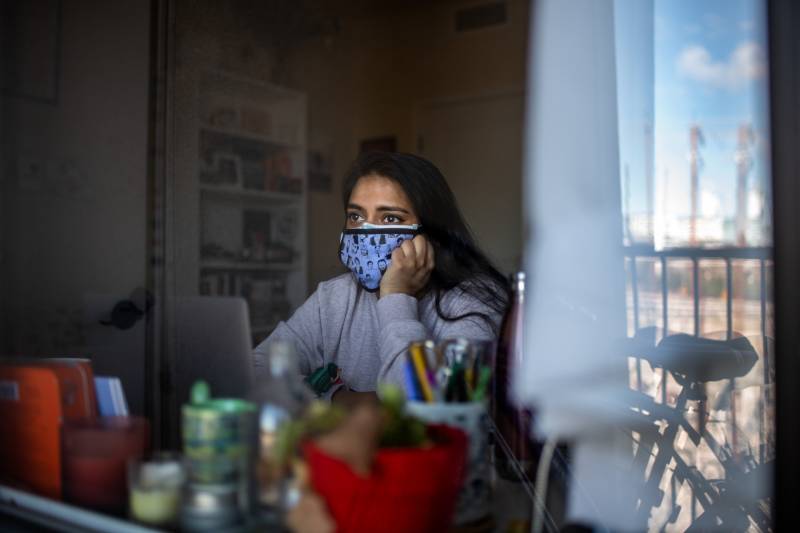Living with roommates isn’t always ideal. Especially since you’re usually choosing your roommates out of necessity and not desire.
But even if you didn’t get along with roommates, at least before COVID-19 you’d have a place to go to get away from them, like work or a coffee shop.
During the pandemic, those escape routes don’t exist anymore. You’re stuck with people you would have never expected — or even wanted — to get stuck with.
This describes my living situation perfectly.
My two roommates and I usually get along fine. When shelter-in-place started back in March 2020, one roommate’s boyfriend moved in indefinitely (and he’s still here) but we made it work. We created a more comprehensive cleaning schedule. And while we would occasionally share a meal, we generally kept to ourselves.
But when the holiday season hit, one roommate wanted to socialize.
When the Party Doesn’t Stop During COVID-19
Spanning about four days at the end of December, there were a series of parties in our small apartment of seven to eight unmasked guests each night playing board games and drinking cocktails late into the night. My other roommate and I would stay in our respective rooms until the guests left and it felt safe to come out, but I was starting to get nervous.
I confronted my roommate about the partying and asked her to stop hosting guests. Begrudgingly, she agreed to stop throwing parties.
But the partying didn’t stop. The very next night, I heard unfamiliar voices in our apartment. It was another party with about five people, throwing darts and drinking cocktails — all unmasked.
I confronted my roommate again, but by then it was too late. A few days later, I tested positive for COVID-19. Then my roommate’s boyfriend tested positive. And then my roommate herself.
How to Talk to Roommates About COVID-19
Karen Lipney, a mediator at the San Francisco-based conflict resolution center Community Boards, has been hearing stories like this from tenants and landlords since the pandemic began.
“Some of [the disagreements] are about security deposits and things, but most of them are about situations just like you’re describing,” Lipney said.

